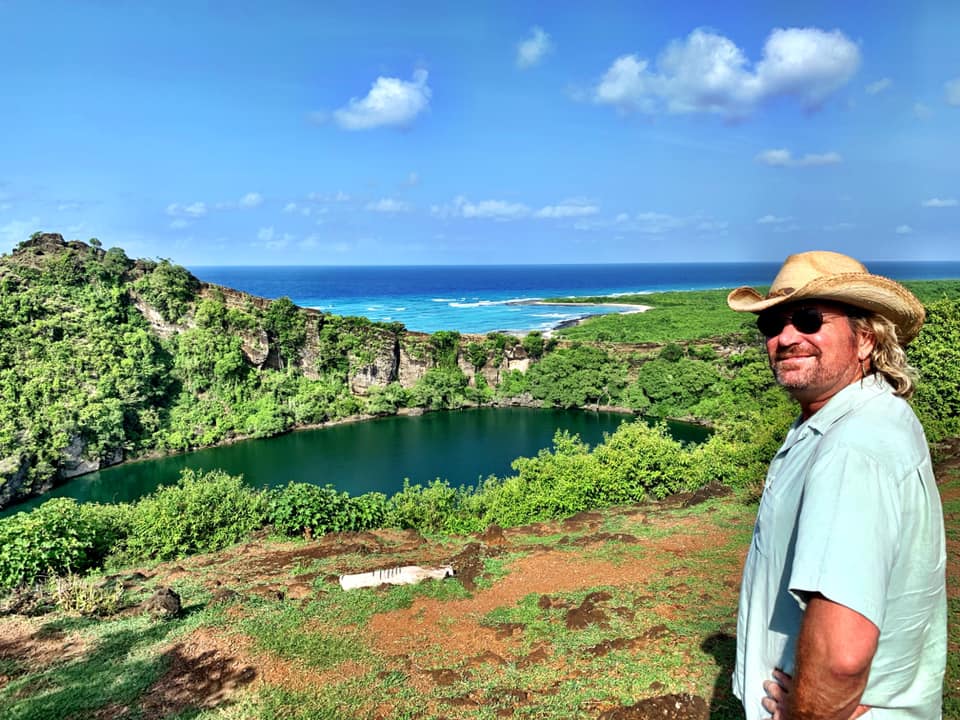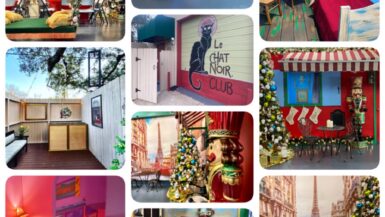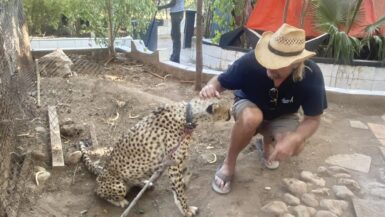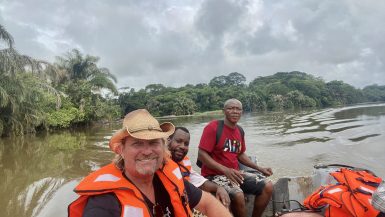I love visiting countries off the tourist grid and I’m sitting in one now. Chances are you’ve never heard of Comoros islands unless you’re a marine biologist or a fan of random islands that start with the letter “C”. The Comoros islands’ biggest claim to fame is that the country is situated in the last remaining part of the globe that has coelacanths deep below it’s waters.
What’s a coelacanth you ask? An almost extinct “dino-fish” that has somehow managed to stay alive a bit longer than the Loch Ness monster. Your chance of seeing this fish is pretty much never going to happen unless you see the embalmed one at the Moroni museum in the country’s capital. Besides the elusive coelacanth, Comoros’ sea also contains a few remnants of the Ethiopian plane that ran out of fuel in the 70’s during a botched hijacking attempt. It crashed into a reef on the northern shore of the island and what’s left has become a popular diving spot for those who make it to this remote island.
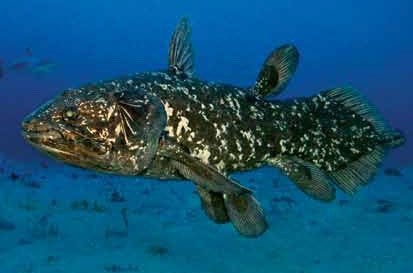
Comoros gained its independence in the 70s and has been struggling since. There’s not much of a tourist infrastructure so it gets few visitors. Litter and abandoned car wrecks plague the island and roads aren’t particularly good. The poster child of the three islands is Moheli which is considered to be the paradise island and is prettier than the main island Grand Comore where I was visiting. Unfortunately, flights are erratic and sailing there can be dangerous. If you’re going there you must be prepared for flight schedules to change or for the plane not go at all.
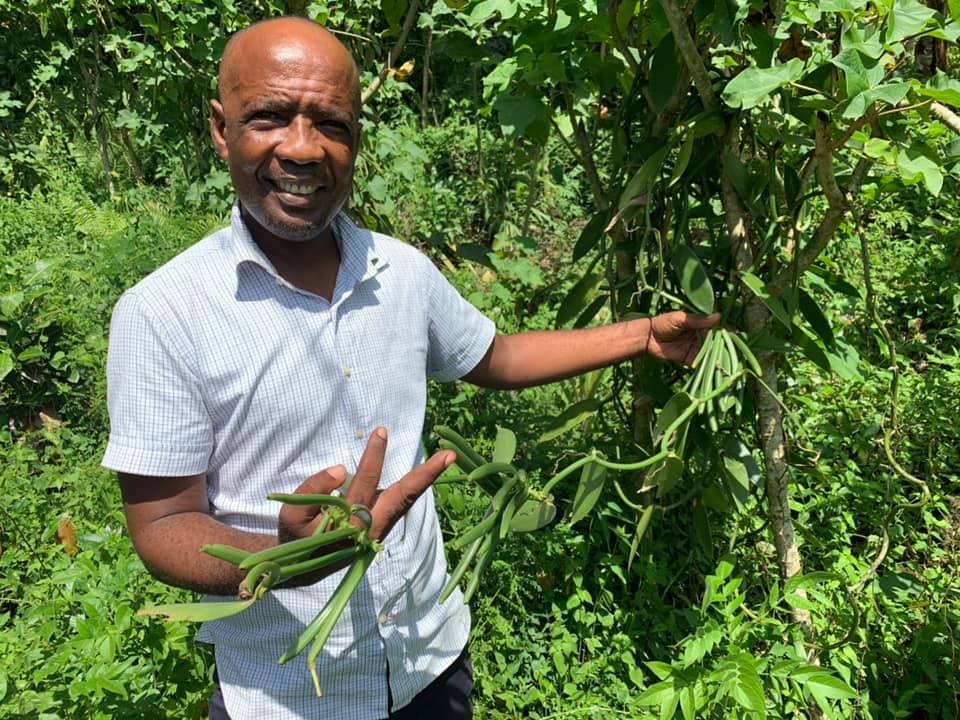
If you’re willing to overlook the issues of this impoverished country, you’ll find a warm and friendly people, some beautiful natural spots and the source of Chanel 5. As strange as that might sound, the Ylang Ylang flower is grown on Comoros and lends its oil to one of the most famous perfume scents of all time. Several other species of flowers such as frangipani and jasmine, are distilled in large copper kettles and have their precious oils extracted. The production of these scents have given the Comoros the nickname of “the perfume isles”. You’ll also find cloves, vanilla, and lots of bananas. There’s not a lot of souvenirs to be found on this island. Since there’s only a handful of visitors, the only shopping for tourists is at the airport. Most of the foreigners on the island are working on the island or in transit to Mayotte or one of the other two islands in the archipelago.
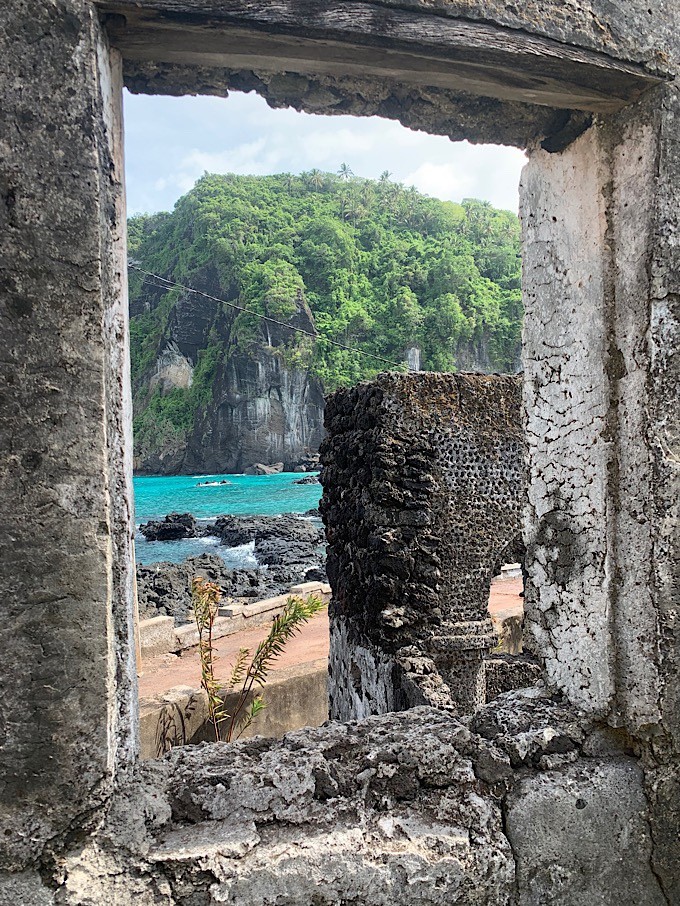
If you like volcanoes, you can climb to the peak of the origin of the island, Mount Karthala. It’s a rigorous climb but on a clear day you get great views of the Comoros and see the after effects of the most recent eruption from 1977. The prettiest beaches lie in the north and east coast as well as the beautiful Lac Sale, a small crater lake nestled between the coast and the highway. Mitsamioulli is the crown jewel of the island, a stretch of white sand that was part of the popular Galawa resort that was torn down to make way for a Dubai hotel chain that ran out of money before it got started. Now there’s a few primitive bungalows that don’t offer much more than a roof. The beach is still a tropical paradise. On some days, there’s a small bar open that serves snacks and beer.
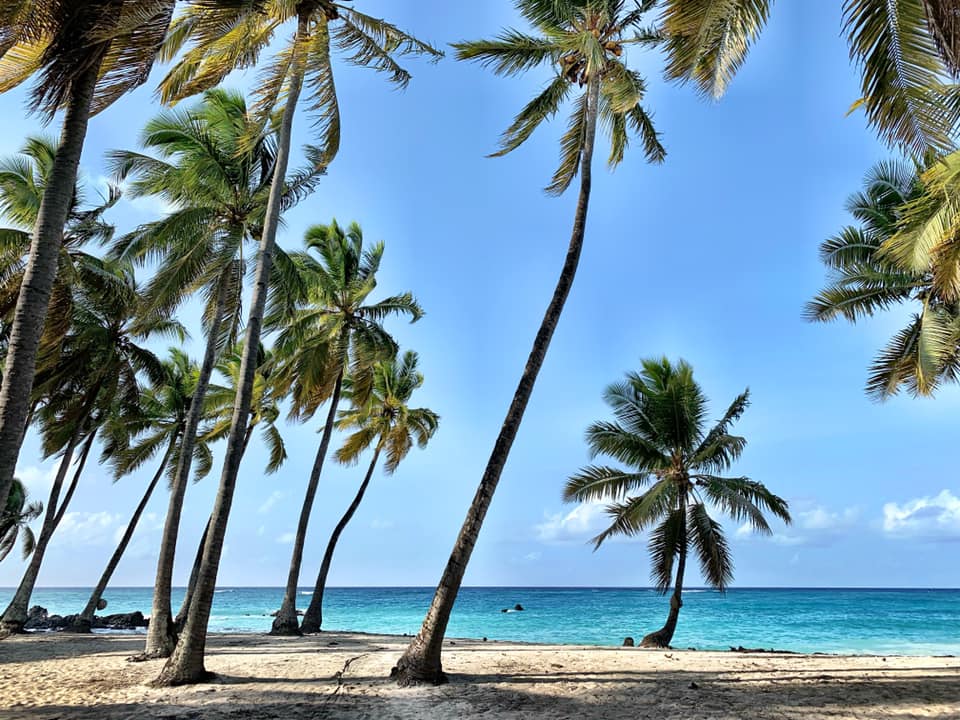
The water is a beautiful turquoise blue, but in shallow waters you might find an underwater pile of discarded beer cans and bottles. It can be frustrating to see a place so beautiful marred by trash that locals don’t even notice. I suppose If you’ve never known anything else, things are unlikely to change. The white sandy beaches are beautiful but only exist in a few places around the island. Much of the island is volcanic and the shores are black lava cliffs.
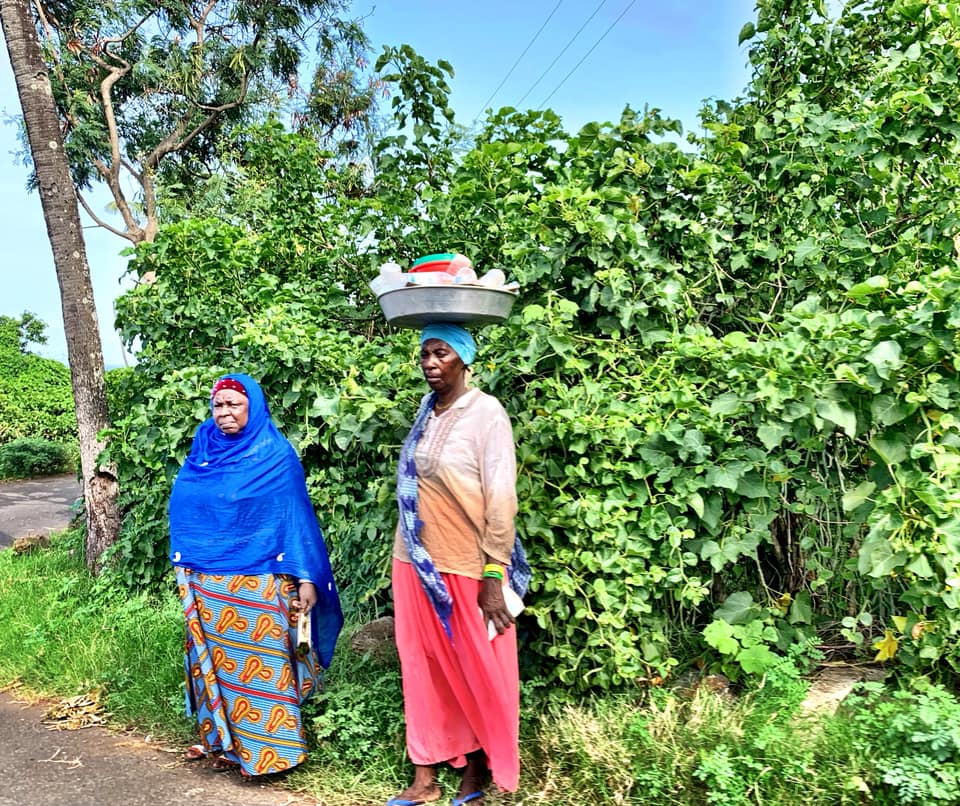
Comoros is the tenth poorest country in the world and life is simple. Fruits, vegetables and fish come from the island, but all manufactured goods come from Madagascar and elsewhere. In spite of the low GNP, no one is starving or begging and locals gather on the beach to swim and play soccer. Everyone seems happy and many will greet you with a smile as you walk down the corniche.
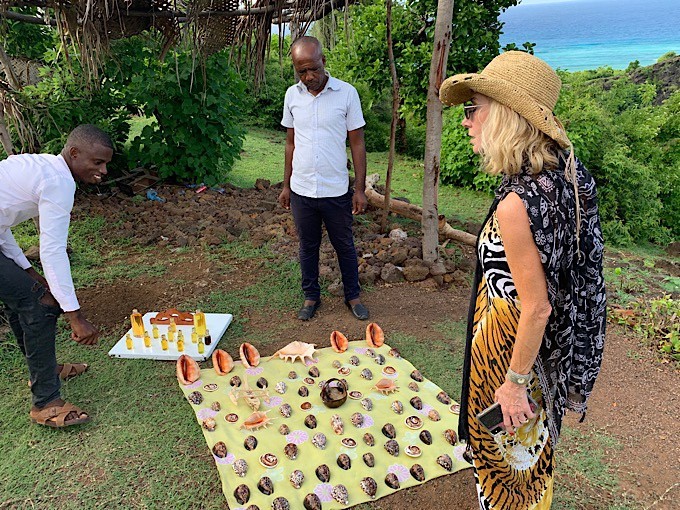
La Coraya is a nice little restaurant along the water to enjoy a cold beer and have a bite. The country is 90% Sunni Muslim so you won’t have many drinking buddies. In spite of the high percentage of tee-totalers, you can still get a drink at a few places in town as well as in the bottle shop in Moroni.
There’s only a handful of international class hotels, The Golden Tulip with its private beach, the Retaj, a huge sports themed place perched on lava shores and El Kalyptus, a small motel-ish place with just a handful of rooms. Crime is virtually nonexistent so you’re fine walking around the streets at night. I couldn’t find any cars to rent although I did see a sign for one. You can rent a car with a guide for €120/day or hop into shared taxis as the come by for about 50 cents per short ride.
Phone service is difficult to come by, but you can buy a local SIM card for a few dollars and stay in touch with the world with a local number and data package.
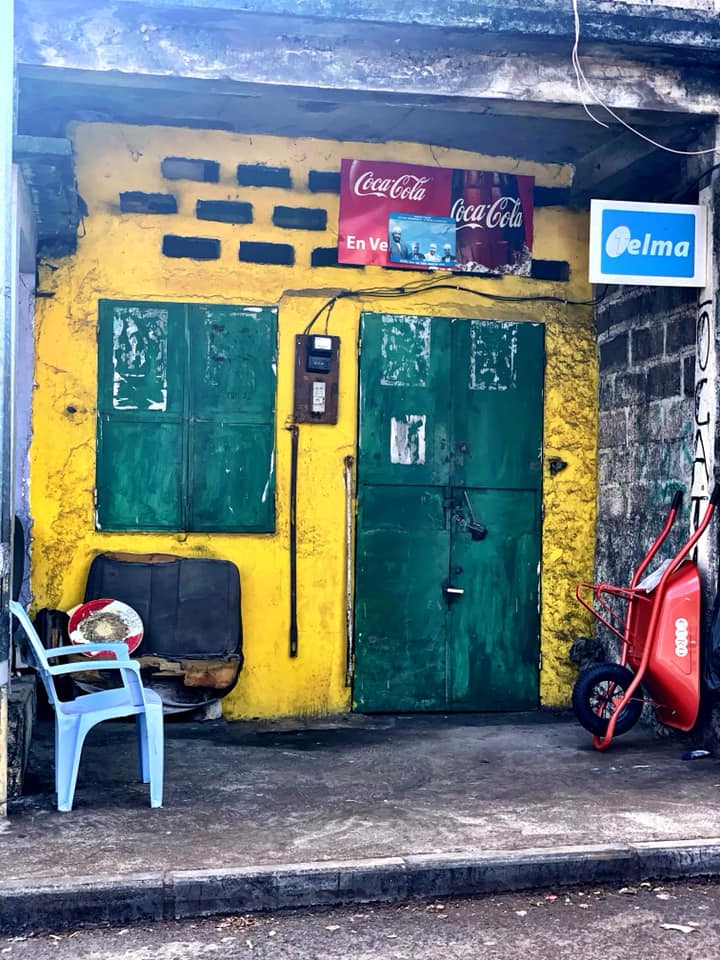
So, should you come to the Comoros? It’s not a postcard destination and it’s not particularly easy, but the people are wonderful and you’ll receive a fabulous insight to a unique culture. Nearby Moheli has humpback whales, a huge turtle population and bats with 5 foot wingspans. Wanna get away from it all? You can’t ask for a place that’s any more remote than Moheli. It’s also an interesting stopover if you’re traveling between East Africa and Madagascar.


